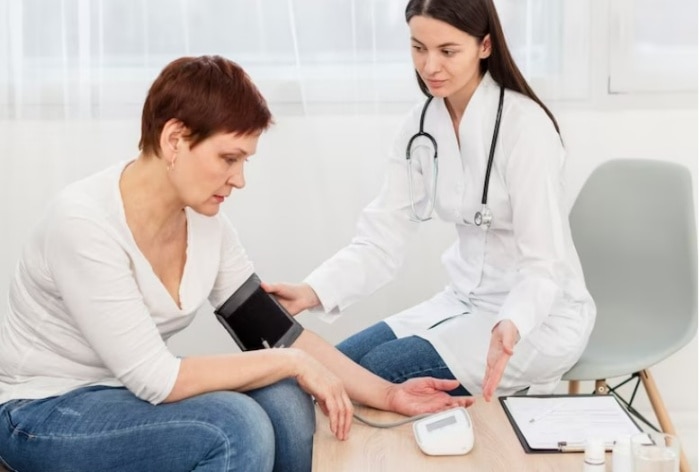We’ll refer to it as a “silent condition” because most people with high blood pressure don’t have any symptoms.
What is blood pressure? When there is a force of the blood pushing against the inner lining of the arteries, it is called blood pressure. When blood pressure builds up very strongly and stays that way for more than a normal period, it is called high blood pressure or hypertension. . The physiology of men and women is different and sometimes affects diseases differently. The severity and onset may differ in men and women. It is a similar case of hypertension. Although there are no definite gender-specific differences in the risk of hypertension, women face unique considerations due to hormonal changes and pregnancy-related factors.
According to the European Society of Cardiology (ESC), around one in three women have hypertension, also known as high blood pressure, worldwide. Elevated blood pressure has been named the most important risk factor for death in women worldwide.
Why and how does hypertension affect women differently?
Postmenopausal BP:
Despite its importance, hypertension is more often underestimated and untreated or undertreated in women compared to men. While hypertension is more common in men under the age of 50, for women high blood pressure is higher after menopause.
“Hormonal fluctuations, particularly during menopause, can influence a woman’s blood pressure,” Dr. Sumit Aggarwal. Associate Director and head of Unit II – Internal Medicines, Sarvodaya Hospital, Faridabad, told IANS.
This may be because “while women benefit from the protective effects of estrogen, those who are susceptible to high blood pressure feel it rise earlier and progress faster,” he added. Additionally, menopausal women may experience weight gain and metabolic changes, increasing the risk of developing hypertension.
“In general, there are no definite gender-specific differences in the risk of hypertension. Specific to women are pregnancy-induced hypertension and oral contraceptive-induced hypertension that require appropriate specific preventive measures,” Dr. Tilak Suvarna, Senior Interventional Cardiologist, Asian Heart Institute, Mumbai, told IANS.
PA and pregnancy:
Pregnancy poses specific challenges in the management of hypertension for women. Conditions such as gestational hypertension, preeclampsia, and eclampsia can arise during pregnancy and affect both the mother and the fetus.
Dr Ajay Kaul, Chairman of Cardiac Sciences at Fortis Hospital Noida, said: “The incidence of hypertension among men is very high at around 33% in India. However, women under 45 years of age, that is, premenopausal, are protected and the incidence is only 11 to 15 percent. But after menopause, the incidence becomes about the same as that of men.”
“We have to be more careful when evaluating the blood records of patients after the age of 40-45. Men have to be very careful because they have a higher incidence throughout their lives. But in women older than 45, the incidence is increasing rapidly, which is a serious problem,” Kaul told IANS.
In addition to hormonal changes, it is also due to other factors such as obesity, which is common after menopause, he said.
5 ways to prevent hypertension in women
The key to controlling high blood pressure in women is similar to that for men, the doctors said.
- regular exercise,
- a well balanced diet
- stress management techniques
- adequate sleep
- Engaging in physical activities appropriate for each stage of life, making heart-healthy dietary choices, and exploring relaxation techniques can help women manage high blood pressure effectively.
Published Date: May 19, 2023 4:31 PM IST
–>
–>
